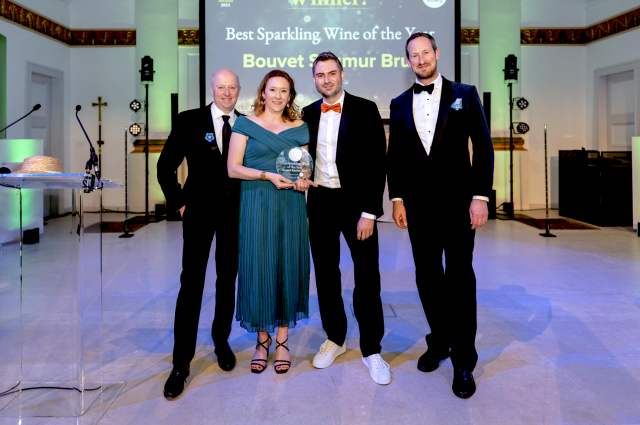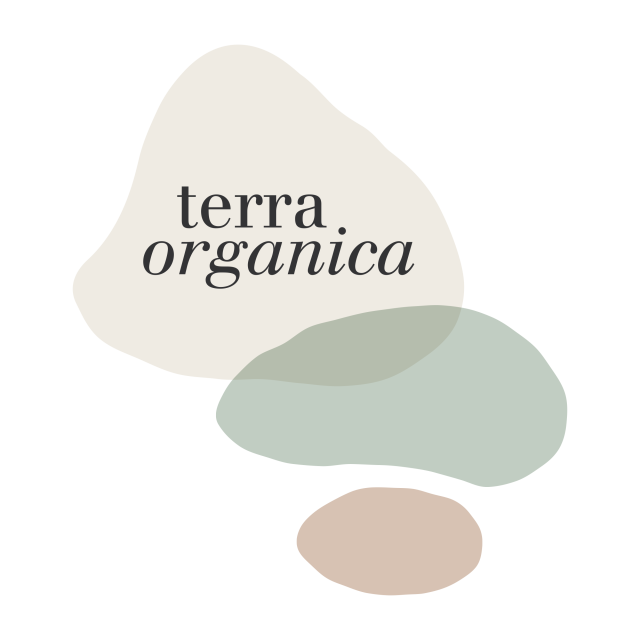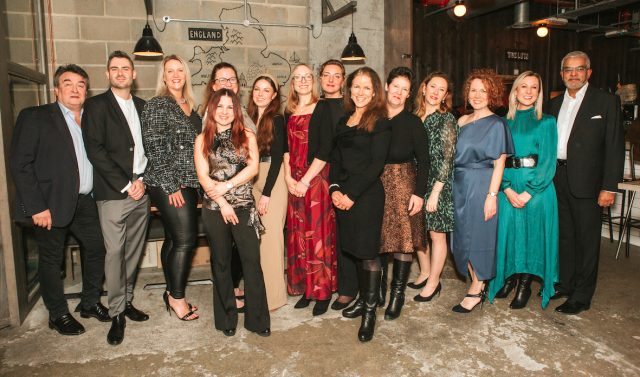Watermill Wines: Flowing into the future
The future looks bright for wine agency Watermill Wines. db caught up with commercial director Richard Dennis to understand its growth mindset.

The word that comes to mind for Watermill Wines is experience. Richard Dennis joined the company a year ago, following roles as a senior buyer at Sainsbury’s, business development director for Benchmarks Drinks and sales director for Della Vite. In addition, there are three other vital cogs in the Watermill machine. Firstly, Dominique Vrigneau who “knows anything worth knowing about French wine”, according to Dennis, also Lindsay Talas, who worked at the big retailers, launching the first screw-cap ranges, and lastly Hatim Dungarwalla with senior experience in financial leadership. Overall, it is a team with over a century in the trade.
So, it comes as no surprise to discover Watermill Wines has been involved in the development of some of the UK’s most successful private label products. In the current commercial environment, where the cost of living and production, changing consumer habits, and environmental changes are all playing a part, Watermill are well-equipped to succeed.
Dennis lays out its business position: “The company is facing into the challenges of today,” he says, “and you don’t have to read the news for two minutes to work out there is a lot going on. What we are doing is staying focused on looking ahead, and futureproofing the business: that’s everything from sustainability, the new duty changes, and working on credible products that are naturally lower than 11.5% ABV.”
“We are also working really closely with producers. Production costs keep on going up, and glass is becoming more difficult to source sustainably, so we are trying to plan for as long-term as possible.”
The challenges are therefore deep and wide, but with Watermill’s expertise, Dennis feels the company can provide the right approach against the coming storm, due to its myriad relationships.
“A lot of this is on the back of climate change.” He continues, “You have regions and areas which need to start managing vines in
different ways, such as Bordeaux, where they are finding that grapes such as Merlot just isn’t enjoying the increasing its temperatures as much. So finding solutions with local areas and producers is vital.”
A good example of where Watermill Wines has achieved success is its Terra Organica range of vegan-friendly and organic wines. It has been a powerhouse for the company, winning multiple awards and has helped to inform the strategy going forward, looking at how sustainability can inform its brand growth.

Dennis explains: “There is a really exciting focus this year on the branded side. Terra Organica has been the company’s big brand, and this Autumn we will be unveiling a new look. This includes redeveloping the brand, the design, and the packaging. On the latter, we are going topless on the bottles with corks: there are no capsules. We are looking to remove anything from the packaging that can go and make things as sustainable and recyclable as possible.”
“We are also looking for alternative forms of bottle, but at the moment there is a big discussion going on whether glass or PET is more sustainable. We’re staying committed to investigating genuine sustainable solutions, rather than allowing the brand to be greenwashed.”
The discussion about the various issues of bottling at source was also raised as a key element for sustainability, especially for a company focused on quality.
Partner Content
Dennis explains: “We are introducing a new wine to the Terra Organica range that will be bulk sourced in October, and that is quite a big change for us as at the moment everything is bottled at source. With organic, it is quality focused, and we always maintain that is as equally important as sustainability.”
The business has also invested in a new colleague who will develop the e-commerce and brands online, as well as a new deal to distribute Della Vite Prosecco in the UK. It is a company constantly growing – in numerous directions.
“Della Vite is a really exciting announcement because it is the first big brand to come to Watermill and said that they would like to work with us,” he continues, “since the deal, we’ve had a series of other brands knocking on our door and wanting to work with us. It is a really great example of seeing a strategy working: being really focused on the off-trade, high accreditation, and working with the multiple grocers; it is obviously a target for a lot of brands.”
Dennis says that going forward Watermill will be “really selective” who it works with alongside its own brand label work.

He explains: “We have a really strong base and specialism with such a fantastic producer base, really high-quality technical accreditation, the ability to do private label at a level that not many other agents can do it in the UK. That will always be our focus.”
In db towers, there is a lot of talk about the duty changes. So does Dennis think the industry is about to see a big shift away from the punchier ABVs to lower alcohol wines?
“I think we will see a polarisation. In entry level wines, anything below £6, it is more advantageous for the retailer to stay cost-competitive on those lines and try to reduce the alcohol. In most cases, there are ways to do it which are less detectable. There will be some cases where it will not be possible, so there will be changes in sourcing, potentially away from some of the warmer, long-haul climates like Australia where a lot of the cheaper, bulk entry level wine is coming from. So it will be really interesting to see what changes there.”
So where does he see being the new exciting growing areas for wine? “You only have to look at where the big brands are buying land and where some of the wineries are looking to expand into,” he says.
“We work with Moselland in Germany, and it has been quite a cool climate, but in recent years they have been increasing their planting of Sauvignon Blanc because it is starting to get a little bit warmer. You can get the ripeness now on the Sauvignon, and it is producing fantastic quality at market-busting prices.”
“So things like that are really interesting for us, and that’s why we want to work so closely with growers and producers. They are the ones on the ground and they are seeing these changes and are already thinking five years ahead – or even ten years ahead.”
Terra Organica will also be presenting a masterclass at the Wine and Spirits Show this October. More details about the event can be found here.
Related news
Refined wines define Martínez Lacuesta's 130-year legacy




